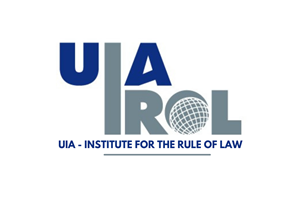UIA - Resolution on the Situation in Poland
UIA
Recalling the fundamental importance of respecting the rule of law, which is intrinsically linked with the principle of democracy and the respect of human rights,
Underlining that the rule of law entails the independence of the judiciary, which notably includes the separation of powers, by shielding the judiciary from politically motivated interferences, as well as impartial and independent judges,
Emphasising that the independence of the judges is particularly secured through their appointment exclusively based on merit (qualifications, experience, integrity, ability, efficiency), and that a protection against unfair disciplinary measures must be guaranteed ,
Recalling also that lawyers represent the privileged guardians and defenders of citizens’ rights and the rule of law,
Deeply regretting that the situation in several countries on the European continent has become highly problematic as regards the protection of the rights enshrined in articles 2, 14§1, 17, 19, 26 of the International Covenant on Civil and Political Rights, articles 2, 7, 19 of the Treaty on the European Union, articles 11, 21§1, 47 of the Charter of Fundamental Rights of the European Union and articles 6§1, 8, 10, 13 of the European Convention on Human Rights.
Deeply concerned about:
- the consequences of the judiciary reform in Poland, which started in 2015 and has targeted three crucial judicial institutions: the Constitutional Tribunal, the National Council of the Judiciary and the Supreme Court,
- the recent scandals that have overshadowed the situation in Poland, especially a defamation campaign, against judges and prosecutors who were opposed to the changes affecting the justice system; the resignation of the Polish Vice-Minister of Justice; the initiation of disciplinary hearings against judges; the dismissal and replacement of hundreds of judges and prosecutors by the Ministry of Justice; and the appointment of new presidents of courts and members of the National Council of the Judiciary on doubtful grounds,
- the incidents endangering the free exercise of the legal profession, specifically:
• the attempts to breach or weaken the client-attorney privilege,
• the acts of vandalism and likely attempted intimidation against the Warsaw Bar Association on the night between 26 and 27 May 2019,
• several incidents of hate against lawyers,
• the recent disciplinary actions before the Disciplinary Chamber against two lawyers who publicly dared to criticize the system,
Keeping in mind that Poland is a member of the European Union, which took strong actions against Poland, such as filing lawsuits – through the European Commission- on 2 October 2018 before the EUCJ for (a) failure to fulfil obligations and (b) against Poland’s executive on 10 October 2019 over the measures introduced to discipline its judges, violating the principle of judicial independence.
Reminding that Poland is a member of the Council of Europe, which also took action regarding the situation in Poland, particularly the notice given by the European Court of Human Rights (ECHR) to the Polish government in July 2019 in the context of the Grzęda v. Poland case, concerning the early termination of the functions of a judge on the National Council of the Judiciary, by invoking articles 6§1 and 13 of the Convention.
Observing a corrosion of Polish democracy through the politization of the judiciary, which deprives the judiciary of objective independence and is at risk of dismantling the fundamental principle of separation of powers, most notably by the attempts of the Polish executive to curtail the independence and impartiality of the judiciary and the legal profession, particularly through its interference with judicial matters,
UIA:
- Urges the Polish government to immediately take all the necessary measures to reinstate a normalized situation, in which the democratic principles and the rule of law are fully respected.
- Calls on the Polish authorities to fully implement the binding judgments of the European Court of Human Rights and the Court of Justice of the European Union without any delay, as well as to comply with the international treaties by which Poland is legally obligated.
- Requests the Polish government to provide without delay the necessary guarantees for secure, protected and free exercise of the legal profession devoid of any threats and pressures.
- Encourages the Polish authorities to take measures necessary to restore for Polish citizens their faith in the Polish judiciary system.






